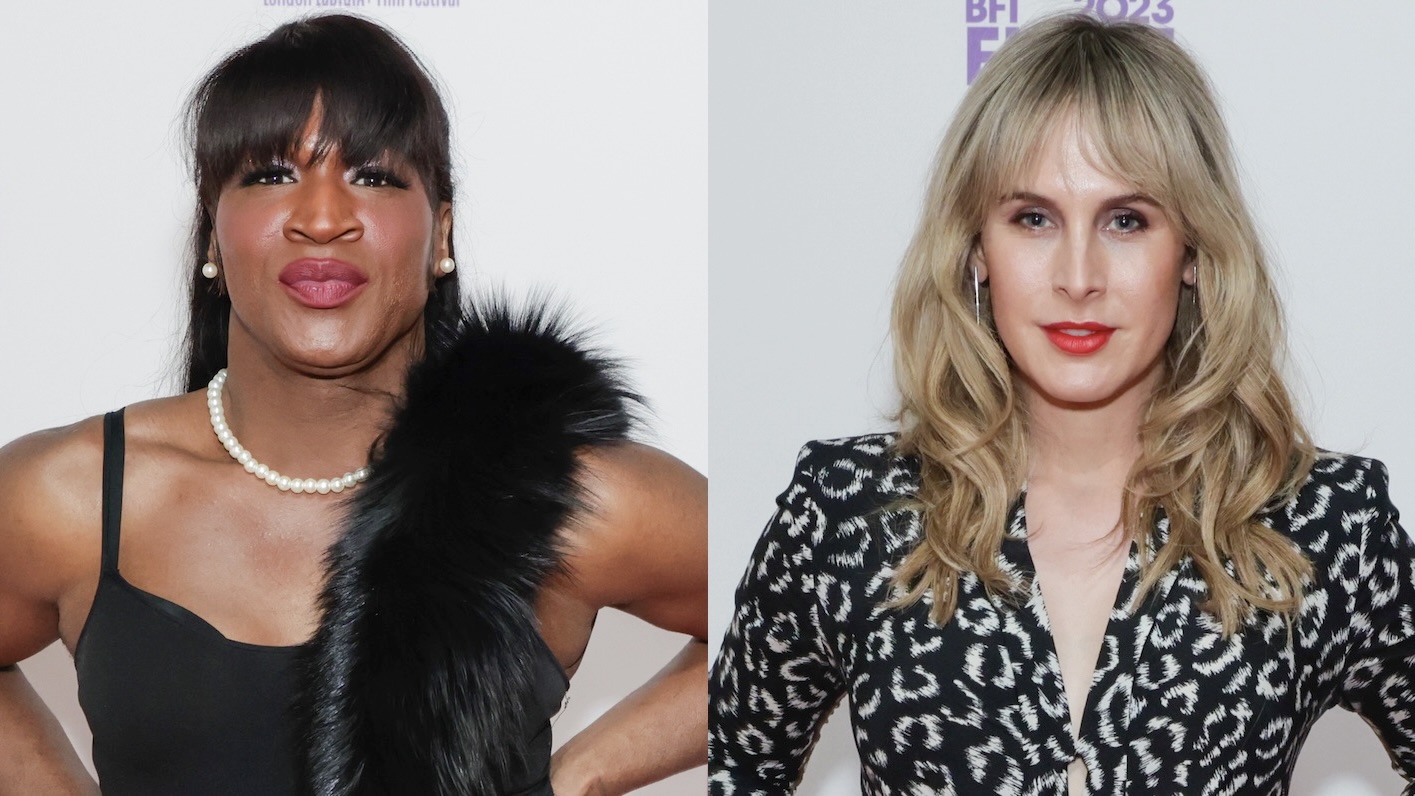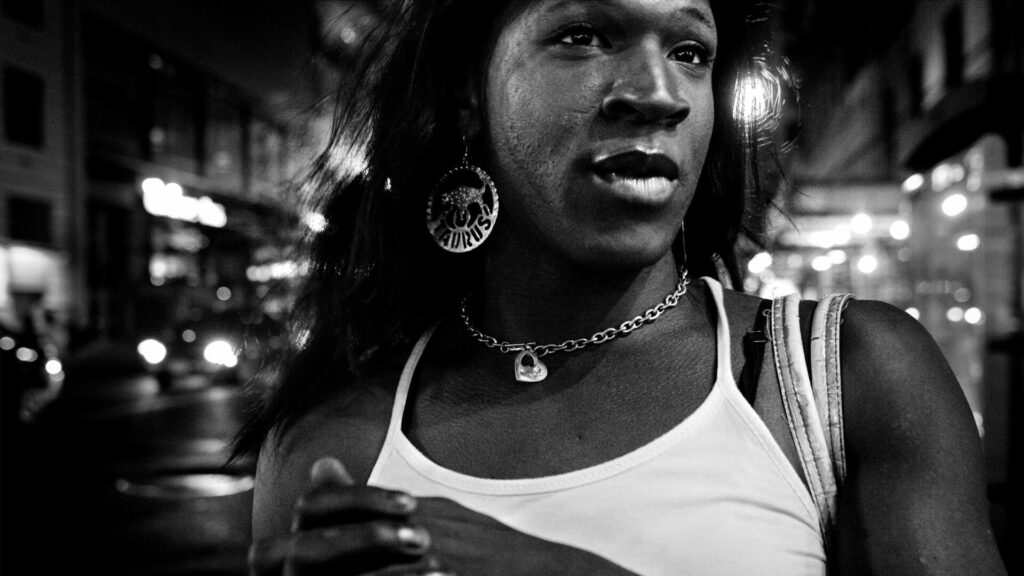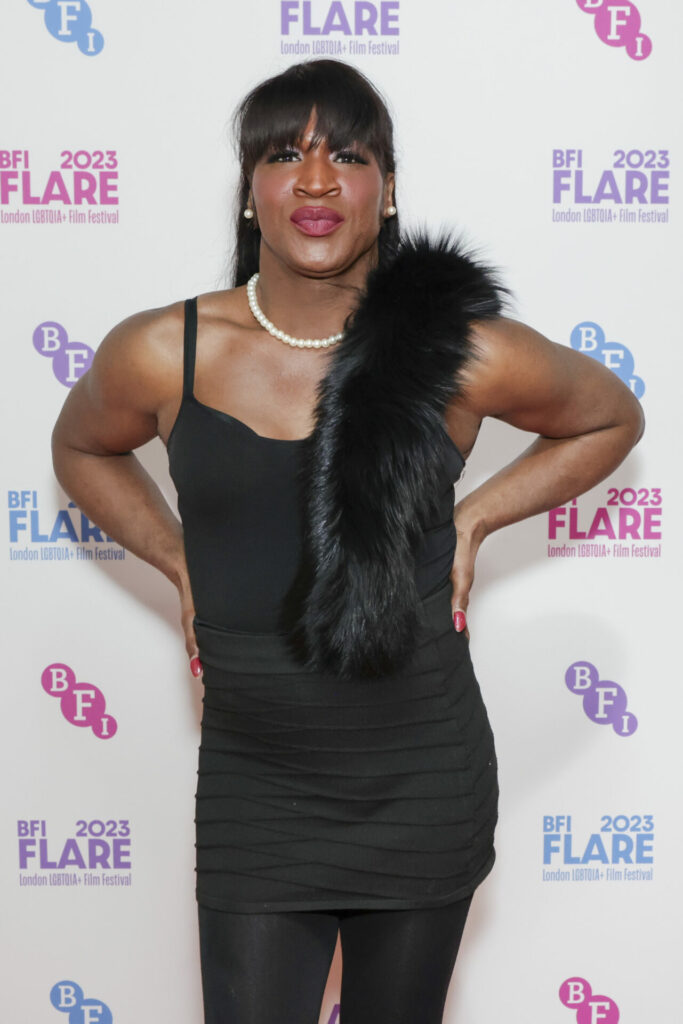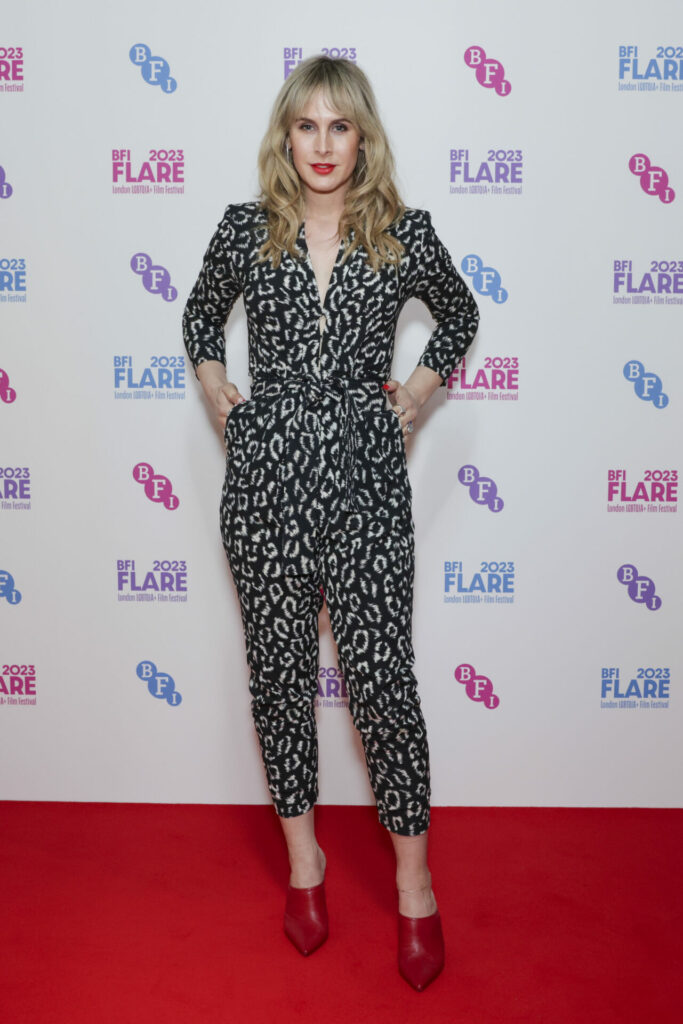BFI Flare: The Stroll’s co-directors warn against anti-LGBTQ legislation: ‘They will come for you eventually. So look out.’
Exclusive: Co-director and executive producers Kristen Lovell and Zackary Drucker told Attitude: "It's essential that we rally for each other and are galvanised and unified in this moment."

The 37th edition of BFI Flare LGBTQIA+ Film Festival launched on Wednesday (15 March) with the spectacular The Stroll.
The award-winning film tells the stories of trans women in New York City’s Meatpacking District who worked as sex workers from the 80s to the early noughties.
Audiences loved it on opening night giving the film and its co-director and executive producer pair Kristen Lovell and Zackary Drucker multiple standing ovations. Attitude gave The Stroll 5/5 in its review.
Lovell anchors the film, telling her own story as well as her sisters’ and acting as narrator and interviewer.

Speaking to Attitude exclusively after the film’s premiere Lovell and Drucker dove further into the film’s making. The pair also commented on the current situation regarding anti-LGBTQ legislation in the US.
What was your reaction to the response at the premiere here?
ZD: Honestly, it’s still a very small group of people who have seen this film. Audiences at three festivals now, that’s a few 100 people. And so it’s still very close to us. It’s still very precious in many ways. I think we’re just bracing ourselves for the wide release in a few months. What was it like getting four standing ovations in one night?
KL: It’s just overwhelmingly positive. It feels nice that the audience is enjoying the film. People are coming up to me and telling me how they feel or what they’ve learned.
When is the film being released?
ZD: June, or maybe later. It’s gonna be on Sky here in the UK and on HBO in the US.
“The arrival of allies in the past decade has made all the difference in the world.”

One thing that struck me watching The Stroll, but also wasn’t much of a surprise, was when you were talking about activism. Your family and people like Sylvia Rivera were campaigning for the LGBTQ community and weren’t getting much back from the rest of the community. How did that feel at the time?
ZD: Very isolating. Kristen and I have very different experiences in many ways. I think for any trans folks who came of age before the so-called ‘trans tipping point,’ we were advocating for our rights in a vacuum. There was no broad support, there was no larger community showing up. The arrival of allies in the past decade has made all the difference in the world. Parents of trans kids and families no longer expelling young children has made a dramatic shift.
KL: It was terrible. I always had problems with the larger LGBT groups in supporting and talking about trans lives. When there was some pressing issue within the community, the lack of support from the broader community was always disappointing. We always had to make do with what we got and that’s what we would do.
“It’s essential that we rally for each other and are galvanised and unified in this moment.
It’s wonderful to see that there is so much more support now. Given the context in which we’re watching The Stroll with everything that’s going on here and in the US in terms of anti-LGBTQ legislation, what is your message to the LGBTQ community right now?
ZD: I think we all have to advocate for the most vulnerable members of our community and uplift those people and fight for their rights. I think that there’s a lot of narcissism in this culture and just total self-absorption. And it’s not until somebody feels their rights are personally threatened that they… to this day, we’ll see gay men and marriage equality threatened because the overturning of Roe v Wade has opened up this possibility that potentially that marriage could be repealed. And the outrage is so loud, all the while trans people are being attacked in state legislatures across the country, being basically barred and banned from public life.
Arkansas just passed a bill in which it’s now illegal for a trans person to use a public restroom and bills to criminalise parents who are facilitating gender-affirming care for their children are sweeping the country. It’s overwhelming. And it’s essential that we rally for each other and are galvanised and unified in this moment. Totalitarianism and fascism pick on individual groups, and then they pick on the next group. They will come for you eventually. So look out. And it can be frustrating when you think about the many people who witnessed the meatpacking district, who witnessed trans youth on the streets and did nothing. One thing I think about showing the film at Sundance was we met a lot of New Yorkers, a lot of people who lived in those neighbourhoods. And their guilt. Their feelings of like, we we’ve witnessed all of that and did nothing.
“These girls were homeless. They were addicted to drugs, and they were dying.”
Has that happened a lot?
KL: There was a famous restaurant. We were trying to pre-interview him, and he flipped the situation and made himself a victim in the midst of it. ‘Oh, look at what your community did to me because we took you to accountability.’ The girl’s struggles didn’t trump his struggle. At the time, these girls were homeless. They were addicted to drugs, and they were dying and you’re a victim? I’m not going to sit here and wipe your tears for you. You were nobody’s victim. Just five minutes ago you were telling me how you made a million dollars on the first two nights. So you’re not a victim.
ZD: This is a restaurant in the Meatpacking District that was famous and whenever you say the Meatpacking District, everybody’s always like, ‘Oh, this restaurant.’ He turned Kristen away.
KL: I lived up a block and I had a job in a coffee shop that fired me because I’d been allowing girls into the shop to get coffee or food or whatever the case may be. But there was obviously a clear ban on trans people. And when I went in there to get a french onion soup one night, he didn’t want to serve me. I’m like, ‘Why are you not serving me like? I don’t understand.’ He’s like ‘You’re kind doesn’t come here.’ This is like 1999. And he’s like: ‘Your kind come in here and pull tricks.’
I’m like, ‘Me personally, I have never come in here to pull tricks. You’re generalising a situation. And I have to be the one?’ So we took him to task. Sylvia Rivera was around us and we were mobilised politically and so we called him into litigation to hold him accountable. I think I was very sweet to him. Because I could have been a bitch and been like ‘Give me all of your money!’ But I just want him to hire trans people.
“We should be telling our own stories, we should be telling our own histories.”

There’s a lot of discussion about representation for good reason. How important is it that The Stroll is a film about trans people made by trans people?
KL: It’s very rare that you find trans filmmakers. It’s like kick open that door and let us make out films and see how it goes. When other people tell our stories, and when it comes out, and they realised that we’re disappointed. That is a clear indication that we should be telling our own stories, we should be telling our own histories.
ZD: This story would not have been possible had Kristin not been in the community talking to members of your chosen family. It just simply would not have happened. The access an insider in the community offers is impossible to replicate. But of course, the model of documentary storytelling is so much predicated on an outsider. And there are advantages to being on the outside of something as well. That’s not absolute.
KL: Yeah, when can we tell other types of stories? I think that’s the point we want to get to whether it be in front of the camera or behind the camera. There’s always discourse about who gets to play what role but once we get to a place where we should all be able to play whatever role that we are suited for despite gender, race, or sexual identity the world would be a better place.
The Stroll is expected to be available on Sky and HBO in June.
